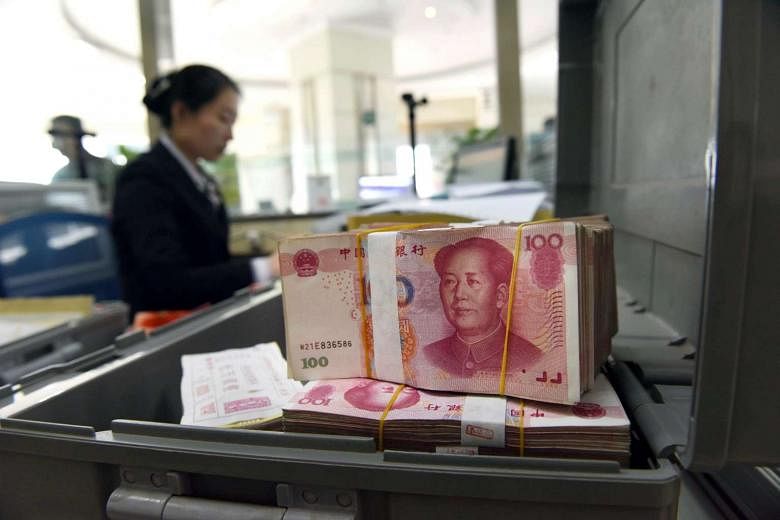Just five months after China shocked the world by devaluing the yuan last August, it seems to be at it again, sending global stocks, currencies and commodities diving and sparking widespread fears of a currency war.
On Thursday (Jan 7), the People's Bank of China (PBOC) cut its reference rate for the yuan by 0.5 per cent, the most since August's 2 per cent devaluation and the eighth straight day that the PBOC has guided the yuan lower. The move sent the yuan falling to 6.5945 to the US dollar, its weakest since February 2011. In just four days, the Chinese currency has lost 1.5 per cent in value.
Here's why this matters:
1. It raises fears about how bad is the slowdown in the world's second-largest economy
To be sure, markets have anticipated that Beijing would allow the yuan to trade more in line with market forces after it was announced it had won entry into the International Monetary Fund's reserve currency basket. But they now fear that Beijing, in a bid to help its exporters, is allowing the yuan's rapid depreciation to accelerate, which would mean China's economy is even weaker than had been imagined, or that official figures show.
Given that the shock yuan devaluation last August triggered a panic in global markets, the fact thst Beijing has embarked on another round of yuan weakening suggests it thinks the economy is struggling enough to warrant this drastic move. The latest official trade show that exports in November dropped 6.8 per cent year-on-year - the fifth straight month of decline - as China struggles with weak global demand, rising labour costs and a strong currency.
2. It hits Asian exporters
A weaker yuan is bad news for export-oriented economies like Singapore, Hong Kong, South Korea and Taiwan as their exports will be more expensive to Chinese buyers. Their exports to other countries will also have to compete against Chinese rivals who have the advantage of a weaker currency.
Some 800 non-Chinese, non-financial companies in Asia, according to their filings, garner 80 per cent or more of their revenue from China, Europe or America, Bloomberg found in a survey of company filings. Their combined annual net profit, which rose from US$40 billion in 2010 to US$50 billion in 2013, has already since slumped to a little less than US$45 billion.
3. The resulting capital outflows hits Asian currencies and commodities
China is the world's biggest user of energy, metals and grains and the yuan's sharp fall exacerbated the slump in the currencies of big commodity suppliers like Australia, New Zealand and Canada.
Fears of a sharper slowdown in China's economy and market turmoil is also triggering a selloff in emerging-market assets by risk-averse investors.
The currencies of South Korea, Taiwan and Singapore are the most vulnerable to a decline in the yuan as their exporters have the highest exposure to China in Asia, according to Barclays, Standard Chartered and Mizuho Bank.
On Thursday, the Singapore dollar sank to a six-year low against the US dollar, while the South Korean fell to a four-month low.
To some extent, weaker currencies might help Asian exporters recoup some of the competitiveness they are losing to China, but at the cost of hurting the buying power of consumers and companies and likely raising the cost of their debt.
4. It could reignite an Asian currency war
Yuan devaluation will put pressure on Asian emerging economies like Vietnam, Malaysia and Indonesia to push down their own currencies to help their exporters and to prevent destabilising capital flows. As it did in the 1997 Asian financial crisis, a competitive spiral of currency devaluations could result.
Such competitive devaluations serve only to crimp trade and economic growth, reducing imports without any benefit to export, the Financial Times concluded recently after research based on more than 100 countries.
5. It hurts Asian banks
The more the yuan weakens against its trading partners' currencies, the greater the risk that corporate profits will be hurt and affect the region's banks.
DBS CEO Piyush Gupta warned on Wednesday that a yuan depreciation could lead to more corporate defaults by Chinese companies who have borrowed heavily in US dollars but have not hedged their loans. Servicing such debt has become much harder because of the yuan's sharp fall.


